Life Below Water
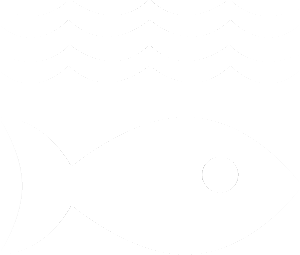

SDG 14 -Israel’s Marine Life & Seaside Sustainability
Israeli tourists and inhabitants alike have always enjoyed Israel’s sumptuous beaches – the sun, the sand and surf – but below the surface of the sea there is a world teeming with life, waiting to be discovered by those who dare explore it. However, before Israel’s marine life can be enjoyed, it first must be protected with seaside sustainability actions.
The Coral Beach Nature Reserve on the Red sea south of Eilat is the only coral reef in Israel. It is a complex and delicate ecosystem, all of whose components are interdependent and connected in terms of metabolism and energy with their environment. Here one can find strange and beautiful corals that create colorful underwater ‘gardens’ navigated by a variety of wildly-hued tropical fish, including butterfly fish, parrot fish, Julie fish, nocturnal fish and many other species. But damage to even one individual in the system can cause a chain reaction that can adversely affect many organisms on the reef and marine or beach pollution can cause an ecological disaster.


The Mediterranean Sea, Israel’s “blue lung” offers long stretches of coastline for recreation, and serves many of the needs of Israeli society, economy and environment. It contains enormous potential energy resources and is also the main source for the production of water for domestic consumption. It is also home to a wide variety of marine life, including but not limited to Loggerhead turtles, sharks, rays, the Mediterranean monk seal, whales, dolphins, sea bass, tuna and pufferfish. Sadly, many of these fish are threatened with extinction.
Overfishing, as well as “bycatch”, where many fish – including whales and dolphins – are caught unintentionally are the main culprits for the precarious situation of Mediterranean marine life. The careless acts of sea-goers – collisions with vessels, habitat destruction, noise pollution, and plastics and chemicals pollution – are also to be blamed.
Until recently no marine-based policies were in place. Less than ten years ago, however, the Israeli government in cooperation with the Marine Conservation Institute, designated nine marine protected areas in the Mediterranean (as well as eight more proposed areas), and adopted a plan to offer informed and responsible management of the sea, including improved public awareness of the designated marine spaces. Today there are thirteen marine protected areas, each of which has a unique marine environment that scientists are trying to conserve.
New marine rangers of the Nature and Parks Authority (NPA) have been working overtime cracking down and imposing fines on fishermen who have been fishing illegally in both the Mediterranean and the Red seas. Just outside Haifa especially, at the Rosh Carmel where unique marine life abounds, fishermen have had a heyday enjoying the sport.
But the NPA has not only been playing bad cop. The marine rangers have also been conducting outreach meetings with fisherman to spread the word about sustainable fishing, and preserving marine resources, as well as to educate them about new regulations and enforcement.
With public awareness and new policies, Israel’s waters will hopefully remain a wonder – and a wonderful destination – for both humans and marine animals alike.
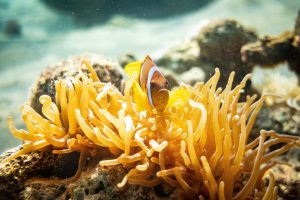

SDG 14-Status Report: Environmental Protection – Part 2
Life Below Water Read Part 1 In Part 1 of this update we focused primarily on Israel’s efforts to clean up its air. Here we’ll
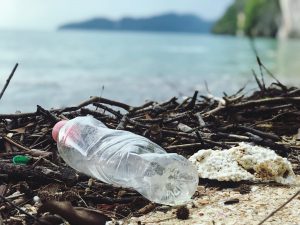

SDG 14-Disappearing Plastic ! Solutum’s remarkable innovation
Life Below Water It will be a momentous point in history when, after unwrapping the plastic off your new headphones or new top you throw
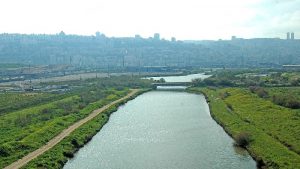

SDG 14-Ridding the Rivers of Waste
Life Below Water They seem to have a lower profile than the “blue lung” Mediterranean, and the “lowest point on earth” Dead Sea, but Israel’s


SDG 14- Cleaning Up Israel’s Beaches
Life Below Water Israel’s coastlines are under a looming threat. In a tiny country, where there are not enough beaches to begin with, hotels, restaurants
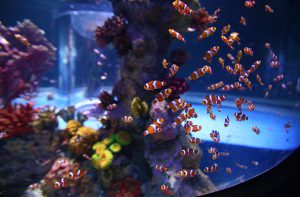

SDG 14-The Israel Aquarium in Jerusalem – An Underwater Wonder
Life Below Water SDG 14- Israel’s New Underwater Aquarium in Jerusalem – What a Wonder On an ordinary visit to the new Jerusalem aquarium one


















